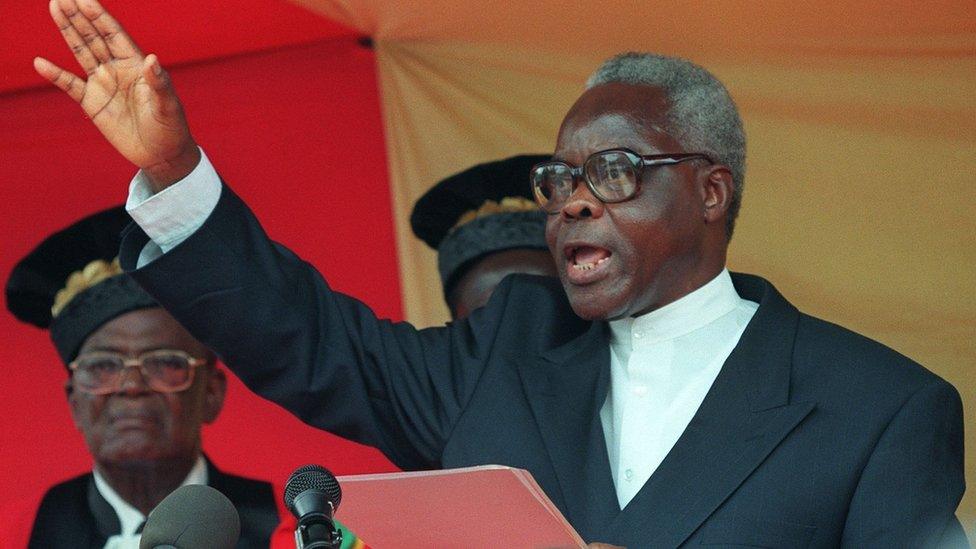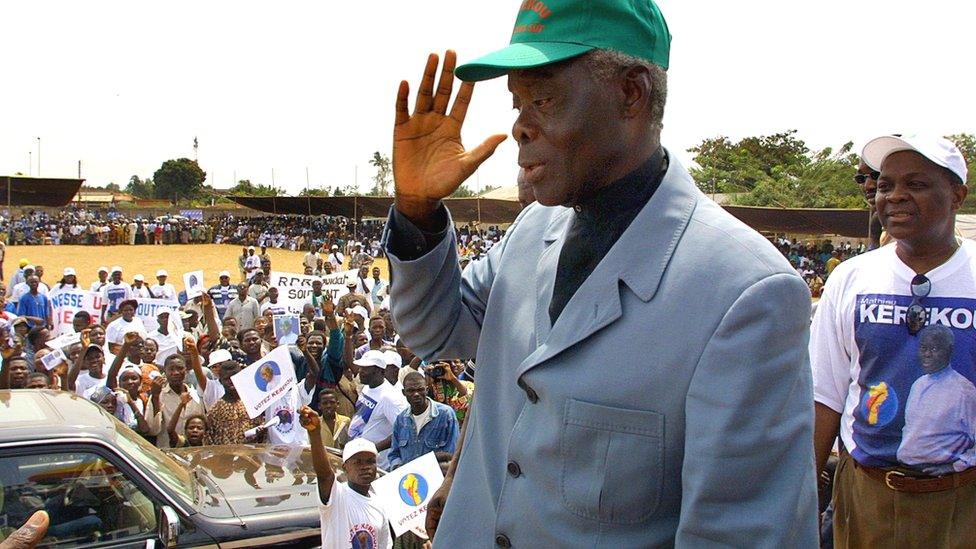Benin's 'father of democracy' Mathieu Kerekou dies at 82
- Published

Mathieu Kerekou came to power a second time after winning the 1996 election
Benin's former President Mathieu Kerekou, the man hailed as helping to usher in multi-party democracy in Africa, has died at the age of 82.
Mr Kerekou had two spells as president totalling nearly 30 years, first coming to power as the head of a Marxist regime in 1972.
But he then accepted the idea of multi-party democracy and organised elections, which he lost in 1991.
He became the first West African leader to admit defeat in an election.
Current President Thomas Boni Yayi described the former president as a great man, external and declared a week of official mourning.

Analysis: Abdourahmane Dia, BBC Afrique

The peaceful transfer of power in Benin in 1991 showed people in the region that a change of president can be achieved without violence.
The 1991 election was followed closely in West Africa and Mathieu Kerekou's willingness to step down - becoming the first regional leader to accept defeat at the ballot box - was welcomed.
His ideological shift, from hardline Marxist-Leninist to believing in multi-party elections, was in part due to the poor state of Benin's economy at the end of the 1980s, but also because of a change in global politics as the Cold War came to an end.
A speech in 1990 by then French President Francois Mitterrand to African leaders calling for an opening up of democracy on the continent also had a big impact.
Mr Kerekou responded to this call and is remembered with pride in Benin as the one who ushered in a new era in West Africa.

Mr Kerekou abandoned Marxism-Leninism as Benin's official ideology in December 1989.
He was under pressure because of the difficult economic situation and faced a series of protests.
He stepped down in 1991 after losing to Nicephore Soglo in a multi-party poll, but returned to power in 1996 having beaten Mr Soglo at the polls and then went on to win a second and final five-year term in 2001.
- Published2 November 2022